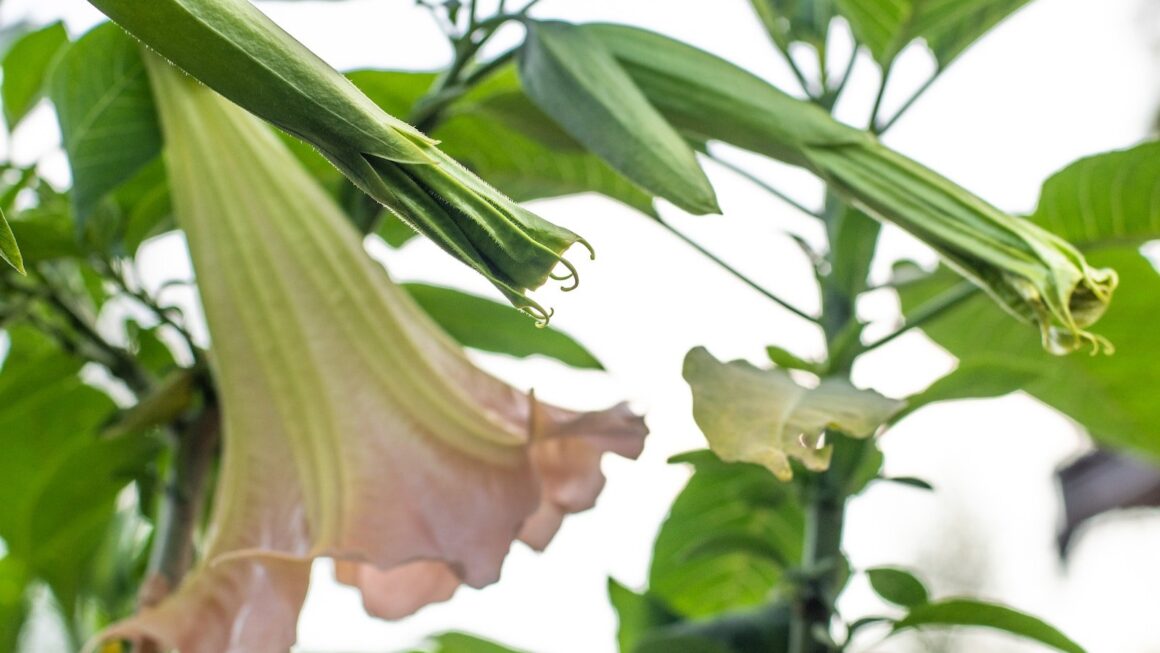Surprising Facts About the Deadly and Psychoactive Datura Plant
The Unassuming Poison: A Beautiful Facade Hides Dangerous Consequences
Few cases exist where someone has intentionally or accidentally consumed Datura and reported a positive experience. From a distance, the plant appears beautiful and harmless; however, interacting with it can lead to alarming consequences.
Historical Encounter With Datura’s Mind-Altering Properties
In 1676, British soldiers stationed in Virginia for Bacon’s Rebellion unintentionally consumed boiled devil’s trumpet leaves. For 11 days, they experienced a strange tranquility, acting harmlessly despite their military background.
The Deadly Side of Datura: Poisonous Effects and Medical Uses
All species of the Datura plant are highly toxic, with some producing psychoactive symptoms. The flowers and seeds contain the most potent toxins. Depending on individual interactions, Datura can cause headaches, respiratory depression, psychosis, delirium, anticholinergic syndrome, hallucinations, and even death.
Despite its lethal properties, traditional uses of Datura include smoking in pipes or cigarettes for medicinal purposes and as a form of anesthesia during surgical procedures in China.
Datura’s Dark Past: Witchcraft, Sorcery, and Suicide
Throughout history, devil’s trumpets have been linked to witchcraft, sorcery, and other supernatural practices. Some Native American groups incorporated Datura as entheogens in their rituals. Historically, it was part of the “witches’ weeds,” along with henbane, mandrake, and nightshade.
Many illnesses and deaths attributed to Datura occurred in the late 90s and early 2000s, a time when modern medicine and education were more prevalent. In the United States, numerous cases involved adolescents who unknowingly smoked or consumed Datura.
In India and some contact regions, the devil’s trumpet was a popular suicide method, causing nearly 3,000 deaths between 1950 and 1965.
Ingestion Through Unsuspecting Sources: Poisoned Honey and Spinach
In 2008, a family of six unknowingly consumed Datura through wasp-produced honey. The Brachygastra lecheguana species of wasps collects nectar from Datura flowers to make their honey. The family exhibited symptoms like confusion, mydriasis, and hallucinations after consuming the poisoned honey.
In 2022, about 200 people in Australia were diagnosed with Datura poisoning after consuming contaminated spinach. The contamination occurred when the spinach was harvested alongside Devil’s Trumpet leaves. Riviera Farms, the grower of the affected produce, took immediate action to eliminate the weed.
Treatment and Defense Mechanisms of Datura
People suspected of consuming Datura poisons are often given activated charcoal to prevent further absorption into the stomach lining. Physostigmine drug is the most common treatment for Datura poisoning. The poison in Datura’s leaves and roots serves as a natural defense against fungi, herbivores, pathogens, and viruses.
The Widely Known Devil’s Trumpet: Scientific Name and Common Names
Scientifically known as Datura stramonium (D. stramonium), the devil’s trumpet plant has numerous names depending on location and culture, including Datura, thornapple, jimsonweed, hell’s bell, devil’s weed, and moonflower.




